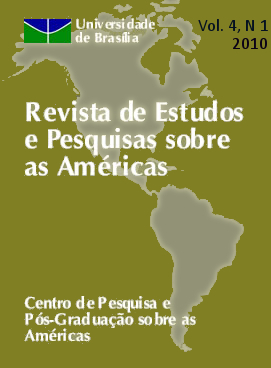A “BRIC”-variety of capitalism and social inequality: The case of Brazil
Resumen
The focus of this contribution is on the mode of capitalism within the industrialized sectors of “emerging markets”. Particularly in the context of the rise of the BRIC (Brazil, Russia, India and China) this question has gained considerable importance, also for the development of the world economy as a whole. The core question is whether the type of capitalism within these economies is similar to the capitalist variety of the triad, or diverges in more or less permanent ways. The article gives a preliminary answer to this question, by developing a rough sketch of a “BRIC” model of capitalism and illustrating this model with the case of Brazil. In terms of theory, the article extends the Comparative Capitalism (CC) perspective to the BRICs. On the one side, the focus is on the classical questions of CC, i.e. the determinants of economic development and the differences to other types of capitalism, on the other side the relationship between these varieties and social inequality. It argues that the “state-permeated market economies” of the BRICs rely on clans as a mode of social coordination. As demonstrated by the case of Brazil, this type of capitalism can be quite successful, but is based on a highly unequal distribution of economic and political resources.
Descargas
Descargas
Publicado
Cómo citar
Número
Sección
Licencia
La materia publicada es propiedad de la Revista, pudiendo ser reproducida total o parcialmente con indicación de la fuente.
Copyright: Los autores serán responsables de obtener el copyright del material utilizado.
Los autores que publican en esta revista concuerdan con los siguientes términos:
a. Los autores mantienen los derechos de autor y conceden a la revista el derecho de primera publicación, con el trabajo simultáneamente licenciado bajo la Licencia Creative Commons Attribution que permite el compartir el trabajo con reconocimiento de la autoría y publicación inicial en esta revista.
b. Los autores tienen autorización para asumir contratos adicionales por separado, para distribución no exclusiva de la versión del trabajo publicada en esta revista (por ejemplo, publicar en repositorio institucional o como capítulo de libro), con reconocimiento de autoría y publicación inicial en esta revista.
c. Los autores tienen permiso y son estimulados a publicar y distribuir su trabajo en línea (por ejemplo, en repositorios institucionales o en su página personal) a cualquier punto antes o durante el proceso editorial, ya que esto puede generar cambios productivos, así como aumentar el impacto y la cita del trabajo publicado (Vea el efecto del aceso libre)

















